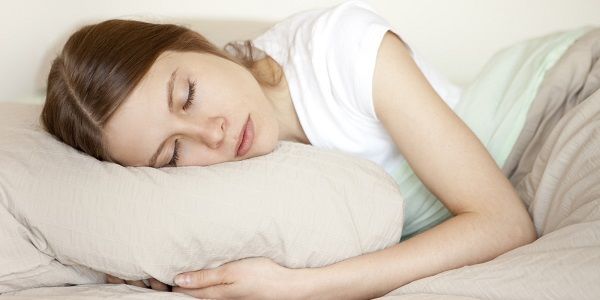According to the Centers for Disease Control and Prevention (CDC), around 1 in 3 Americans report not getting enough sleep.
These large numbers mean that sleep deprivation has become a major public health concern as sleep quality has a profound effect on overall health and levels of functioning. If you too have been suffering from chronic insomnia, you are already familiar with how it can affect your quality of life.
Unfortunately, sleeping pills and therapy are not enough to get your sleeping patterns back to normal. Sleeping problems are often a result of a hyper-arousal of the body’s stress response. Downregulating your stress response is crucial when tackling chronic insomnia and one way you can do that is through regular exercising.
About insomnia
Insomnia is considered one of the most common sleep disorders. Unfortunately, around 60% of people suffering from chronic insomnia don’t talk to their doctor about their problem. The consequence is usually problems in daily functioning and the development of chronic diseases.

Sleep is tightly linked to various metabolic, and hormonal processes and research show that sleep deprivation can have a negative effect on cardiovascular health and a person’s general health status.
For all these and many other reasons, it is important to address sleep problems as soon as you notice the first symptoms such as troubles with falling asleep, disrupted sleep, waking up early, and feeling sleepy throughout the day.
The exercise-sleep connection
There is a large body of research examining the role of exercise and physical activity in healthy sleep. But as Kelly Glazer Baron, a clinical psychologist, and sleep researcher at the Feinberg School of Medicine at Northwestern University noted, most of these studies have tested these effects on healthy subjects.
She had decided to conduct a different research after her clients had complained of poor sleep despite exercising regularly. Her study which was published in the 2013 issue of the Journal of Clinical Sleep Medicine (JCSM) was based on data from an older sleep study from 2010 published in Sleep Medicine.
The subjects were mostly women in their 60s diagnosed with chronic insomnia. Dr. Baron analyzed their sleep diaries and found that most subjects did not report better sleep following a day of exercising. However, after a couple of months of regular exercising, the subjects began to sleep soundly.
The difference between insomniacs and healthy people
A possible explanation why exercising may promote better sleep in healthy subjects but not in chronic insomniacs has to with the stress response system. Healthy subjects report better sleep following a bout of exercising because they fatigue themselves. On the other hand, exercising may not be enough to downregulate the hyper-aroused stress response system often seen in insomniacs. The reasons why people may experience insomnia are many ranging from stress and anxiety to medical disorders.
Dr. Baron explains that people suffering from chronic insomnia are neurologically different so the same exercising rules do not apply to them. In fact, exercising can even worsen insomnia at first because this type of activity is considered a physical stressor. It may actually take time before chronic insomniacs start experiencing the same sleep-promoting benefits of exercising as do healthy subjects.
Why you still need to exercise
Although these results may seem a bit discouraging at first, the findings actually speak in favor of exercise as a viable treatment option for chronic insomnia. The findings just point out to the fact that treating insomnia is not as simple as we were initially made to believe.
Sleep is a complex process that can become disrupted for various reasons. Psychiatric disturbances and even natural aging can have a profound effect on sleep. Finding what exactly is causing your sleep disturbance is the key to fighting insomnia. Most experts, however, agree that what chronic insomniacs have in common is a hyper-aroused stress response system. Anything that can calm down your stress response should also help you sleep better.
Dr. Baron and other medical experts encourage exercising as a way to treat insomnia as exercising can help with anxiety, depression, and it also improves your overall health.
Conclusion
If you’ve suffered from chronic insomnia for some time now, you’ve probably tried many things in the hopes of getting your sleeping patterns back to normal but to no avail. The key to better sleep is keeping the stress response in check.
There are many things that could lead to a hyper-aroused stress response system ranging from emotional disturbances, anxious personality, to physical illnesses.
Exercising is a healthy activity on so many levels, and as studies show, it can have a beneficial effect on sleep. Exercising can keep your mind off of excessive worries and can down-regulate your stress response. You just need to be patient as it may take some time before your sleeping patterns become normal again.









































